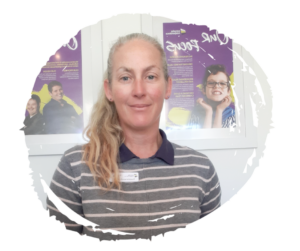NDIS Physiotherapy – Support for People With Disabilities
We chat with Trish Hill, Clinical Education and Physiotherapist Lead at Everyday Independence, about how physiotherapy supports people with disabilities in achieving their goals. Trish is a passionate physiotherapist with extensive experience in Paediatrics.
What is Physiotherapy?
Physiotherapy is a health profession focused on assessing, diagnosing, and treating movement-related challenges. Its goal is to improve mobility, physical function, overall well-being, and quality of life. While often associated with injury recovery, physiotherapy for disability supports people of all abilities to participate more fully in everyday life.
How can Physiotherapy Help Someone with a Disability?
It’s a common misconception that physiotherapy only helps people recovering from an illness or injury. In reality, NDIS physiotherapy empowers peope with disability to achieve greater independence, confidence and quality of life.
Whether someone needs help with:
- improving movement and mobility
- managing chronic or acute pain
- developing social connections
- participating in community or work activities
- building confidence during transitions, like starting school or a new job
- enhancing independence and well-being.
Physiotherapy for disability is holistic and goal-focused. It supports not just the physical body but also mental well-being and social inclusion.
Under the NDIS, physiotherapists can support people with physical, intellectual, and psychosocial disabilities—including Autism, depression, and anxiety—to achieve their personal goals and lead more fulfilling lives.
Real-Life Examples of NDIS Physiotherapy in Action
NDIS physiotherapy can have a powerful, real-world impact. Here are some examples:
- Teaching an autistic child to ride a bike boosts social engagement, improves coordination, and promotes lifelong healthy habits.
- Supporting someone with an intellectual disability to join a local gym or sports program helps them meet the World Health Organization’s physical activity guidelines, build community connections, and feel safer and more confident in public settings.
- Helping a person with an intellectual disability access a local gym or community sports program can support them in meeting the World Health Organisation’s recommended 150–300 minutes of moderate physical activity per week. Additionally, this not only improves their health but also helps them build friendships and feel safer as they become more familiar and connected with their local community.
How do Physiotherapists Support People With Disabilities?
Every person’s journey is unique. A physiotherapist tailors support based on the individual’s goals, current abilities, and support networks. Here are some ways physiotherapy for disability helps:
- Comprehensive assessments to understand how someone moves at home, in school or in the community – including strenght, balance, endurance, join mobility and fitness.
- Collaborating with other therapists on an individual’s therapy team to develop tailored strategies for long-lasting positive changes
- Supporting key transitions, like starting preschool or school, with confidence and functional skills
- Prescribing mobility equipment such as walking sticks, wheelchairs or a walking frame to enhance mobility and independence
- Developing tailored exercise plans to improve mobility, coordination, flexibility, and functional skills
- Assessing and prescribing assistive technology
- Connecting individuals to sport and recreation programs like school PE classes, community gums, or team sports for social inclusion and improved physical health and well-being.
What Conditions Can NDIS Physiotherapy Help With?
NDIS physiotherapists work with people of all ages and abilities, including those with:
- Physical disabilities, such as Cerebral Palsy, Multiple Sclerosis, Spinal Cord Injury, or Acquired Brain Injury
- Intellectual disabilities, including Down Syndrome or global developmental delay
- Psychosocial conditions, such as Autism, severe anxiety, depression, or schizophrenia.
If your condition impacts your ability to move, participate, or live independently, NDIS physiotherapy can help you reach your goals.
Getting Started with NDIS Physiotherapy
Getting started is simple. Call us on 1300 179 131 or complete our online enquiry form, and one of our friendly team members will be in touch to discuss how our NDIS physiotherapy can support you or your loved one.


